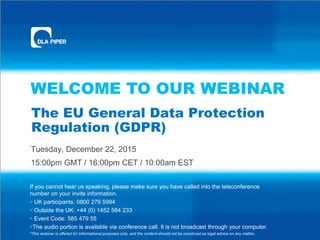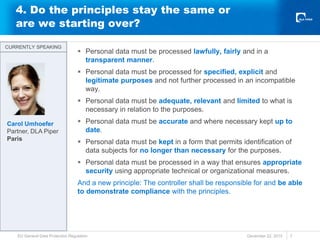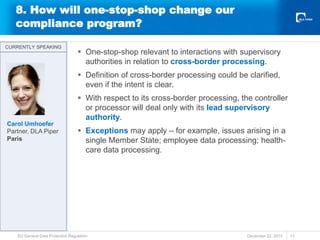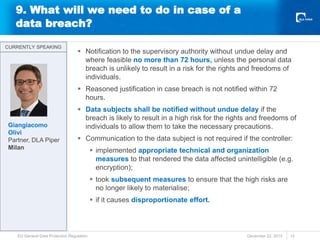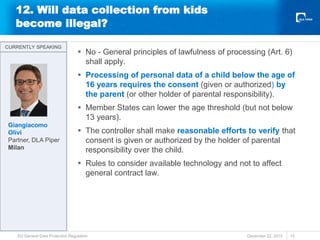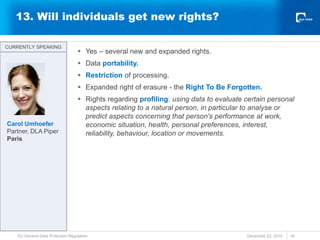The document provides an overview of the EU General Data Protection Regulation (GDPR) through a series of 20 questions and answers. Some of the key points covered include how the GDPR will have a single set of rules across the EU, the large fines companies could face for non-compliance, new data subject rights and consent requirements, obligations around international data transfers, data breaches, and the roles and guidelines of new regulatory bodies.
